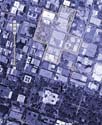Building codes by their nature tend to be limiting—they limit designs, materials and construction methods to those specifically prescribed in codes and meeting codes' performance requirements. However, most codes contain provisions that allow building officials to approve alternatives that are not specifically permitted by the codes.
You should be aware of these alternative approval provisions because they apply to an increasing number of roofing products and roof systems.
Alternative approval
The 2006 edition of the International Building Code (IBC) includes the following statement regarding alternatives: "104.11 Alternative materials, design and methods of construction and equipment. The provisions of the code are not intended to prevent the installation of any material or to prohibit any design or method of construction not specifically prescribed by this code, provided that any such alternative has been approved. An alternative material, design or method of construction shall be approved where the building official finds that the proposed design is satisfactory and complies with the intent of the provisions of this code, and that the material, method or work is, for the purpose intended, at least the equivalent of that prescribed in this code for quality, strength, effectiveness, fire resistance, durability and safety."
Evaluation reports
To assist in evaluating alternatives, building officials likely will request supporting data in the form of valid research reports from recognized sources.
ICC Evaluation Service (ICC-ES) Inc. issues research reports, commonly referred to as "evaluation reports," based on technical evaluations the company performs on building products, components and materials. Because ICC-ES is a subsidiary of the International Code Council, which publishes IBC, ICC-ES evaluation reports are considered by most building officials to be valid research reports when considering alternative approvals.
ICC-ES evaluation reports are available for hundreds of manufacturers' building components, products and systems, including many roofing products. These reports can be obtained from the individual manufacturers that have requested evaluations and on ICC-ES' Web site.
Roofing products
IBC's alternative approval provisions provide a viable means for you to gain a building official's approval of newly developed roofing products and roof systems and those not yet specifically permitted by IBC.
Roofing products that are not specifically permitted by IBC but have evaluation reports include synthetic steep-slope underlayments; fiber cement and synthetic shingles, shakes and slates; metal shingles; some specialty asphalt shingles; and hot, fluid-applied membrane roof systems.
IBC's alternative approval provisions also can be used to gain a building official's approval for roof system types the code does not completely address.
For example, vegetative green roof systems are described in the code; however, the code does not contain specific external fire- and wind-resistance classification information that is considered appropriate for vegetative green roof systems.
At this time, I am not aware of any manufacturer of vegetative green roof systems that has obtained a system-specific evaluation report. However, I hope manufacturers will pursue evaluation reports to help roofing professionals obtain building officials' approvals through the code's alternative approval provisions.
Additional information about building code requirements specific to roofing products and roof systems is provided in The NRCA Building Codes Manual, Third Edition.
Mark S. Graham is NRCA's associate executive director of technical services.



